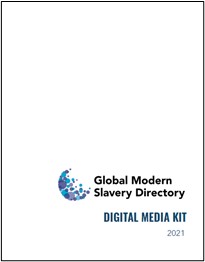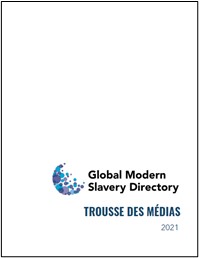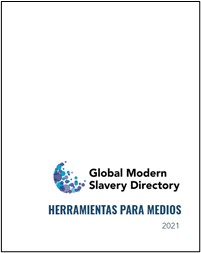This digital media kit is meant to provide you with the tools and information you need to reach out to and engage with your supporters about the Global Modern Slavery Directory (GMSD).
French version- Ce kit média numérique est destiné à vous fournir les outils et les informations dont vous avez besoin pour contacter et dialoguer avec vos partisans au sujet du Global Modern Slavery Directory (GMSD), en français Répertoire Mondial de l’Esclavage Moderne.
Spanish Version- Estas herramientas para medios están destinadas a proporcionar las herramientas y la información que necesita para comunicarse con su público y colaborar con él sobre el Global Modern Slavery Directory (GMSD), en español el Directorio Global de Esclavitud Moderna.
What is the Global Modern Slavery Directory?
The Global Modern Slavery Directory is a publicly-searchable database of over 2,700 organizations and hotlines working on human trafficking and forced labor around the world. What began as a collaboration between Polaris, the Walk Free Foundation, and the Freedom Fund, the GMSD is the most comprehensive database of modern slavery organizations with more than 190 countries represented. By enabling individuals in the anti-human trafficking field to better locate, identify, and connect with each other, the tool helps victims of human trafficking and at-risk populations get connected to the help they need where it’s available. Visit globalmodernslavery.org for more information.
What is Polaris?
Named after the North Star, an historical symbol of freedom, Polaris is leading a social justice movement to fight sex and labor trafficking at the massive scale of the problem- 25 million people worldwide robbed of the freedom to choose how they live and work. For more than a decade, Polaris has assisted thousands of victims and survivors through the U.S. National Human Trafficking Hotline, helped ensure countless traffickers were held accountable, and built the largest known U.S. data set on actual trafficking experiences. With the guidance of survivors, we use that data to improve the way trafficking is identified, how victims and survivors are assisted, and how communities, businesses and governments can prevent human trafficking by transforming the underlying inequities and oppressions that make it possible.



